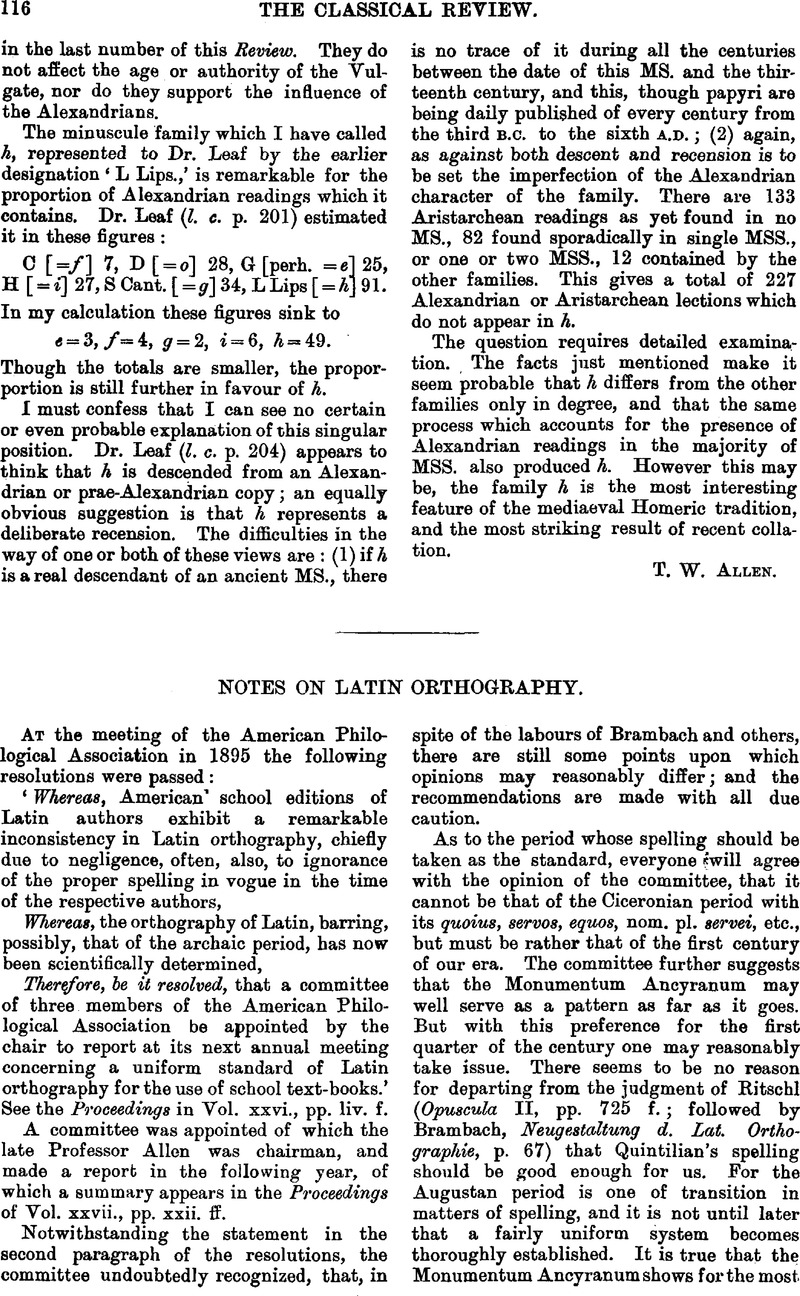Article contents
Notes on Latin Orthography
Published online by Cambridge University Press: 27 October 2009
Abstract

- Type
- Original Contributions
- Information
- Copyright
- Copyright © The Classical Association 1899
References
page 117 note 1 One might add the report that Varro preferred bs in the nominative of words with b in the oblique cases, quoted by Terentius Scaurus (Keil, vii. p. 27), Papirian apud Cassiodorns (K. vii p. 159), and by many modern writers. But if this statement is to be found in Varro's extant works, I have not noticed it. And his words in one passage (Ling. Lat. x. 56–7) seem to show clearly that, whatever he may have preferred, the actual spelling with which he was familiar was -ps, which agrees with what we know from the inscriptions of his time. For in developing the idea that it is often better to start from the plural form in explaining a word, he says that from trabes and duces we see that the e is dropped, and therefore traps and dux formed in the singular, but that from the singular we do not see how traps is made from b and s or dux from c and s. The text is corrupt and editors read trabs, but with this reading the point is lost. The later grammarians were at odds in this matter. Those who favoured ps in urps, etc., justified their belief, characteristically enough, by stating that such words would show ψ in Greek, and that for ψ one should write in Latin ps not bs. So Terentius Scaurus, K. vii. p. 27, Marius Victorinus, K. vi. p. 21, and others. But Marius Victorinus would write bs in compounds like abstinet, obstipuit, etc. Those who favour the etymological spelling of urbs, etc., also demand labsus, scribsi, etc. And Velius Longus, who is unable to come to a decision, is as much troubled about the spelling of absorpsi as about that of urbs (cf. K. vii. pp. 61, 64, 73–4). But Priscian differentiates clearly, and while favouring urbs, plebs, etc. (K. ii. pp. 33, 320–1, 326), as well as abscondo, etc. (K. ii. p. 46), teaches scripsi, lapsus, etc. (K. ii. 506–7). And in laying down this principle, which is the one we follow, Priscian was certainly no innovator but the expounder of What had long been the best usage. For inscriptions show that, while bs had long since become the standard spelling in prepositional compounds, and also, though perhaps somewhat less exclusively, in plebs, etc., forms like scribsi, conlabsus (cf. even ibsius), though not uncommon in the aggregate, are far in the minority as compared with scripsi, conlapsus, etc.
page 118 note 1 The line is printed in the Corpus in smaller type than the rest of the inscription, representing, we may presume, an insertion. But there seems to be nothing to indicate that this was anything more than the stone-cutter's immediate rectification of his oversight in copying from the written text.
- 2
- Cited by


